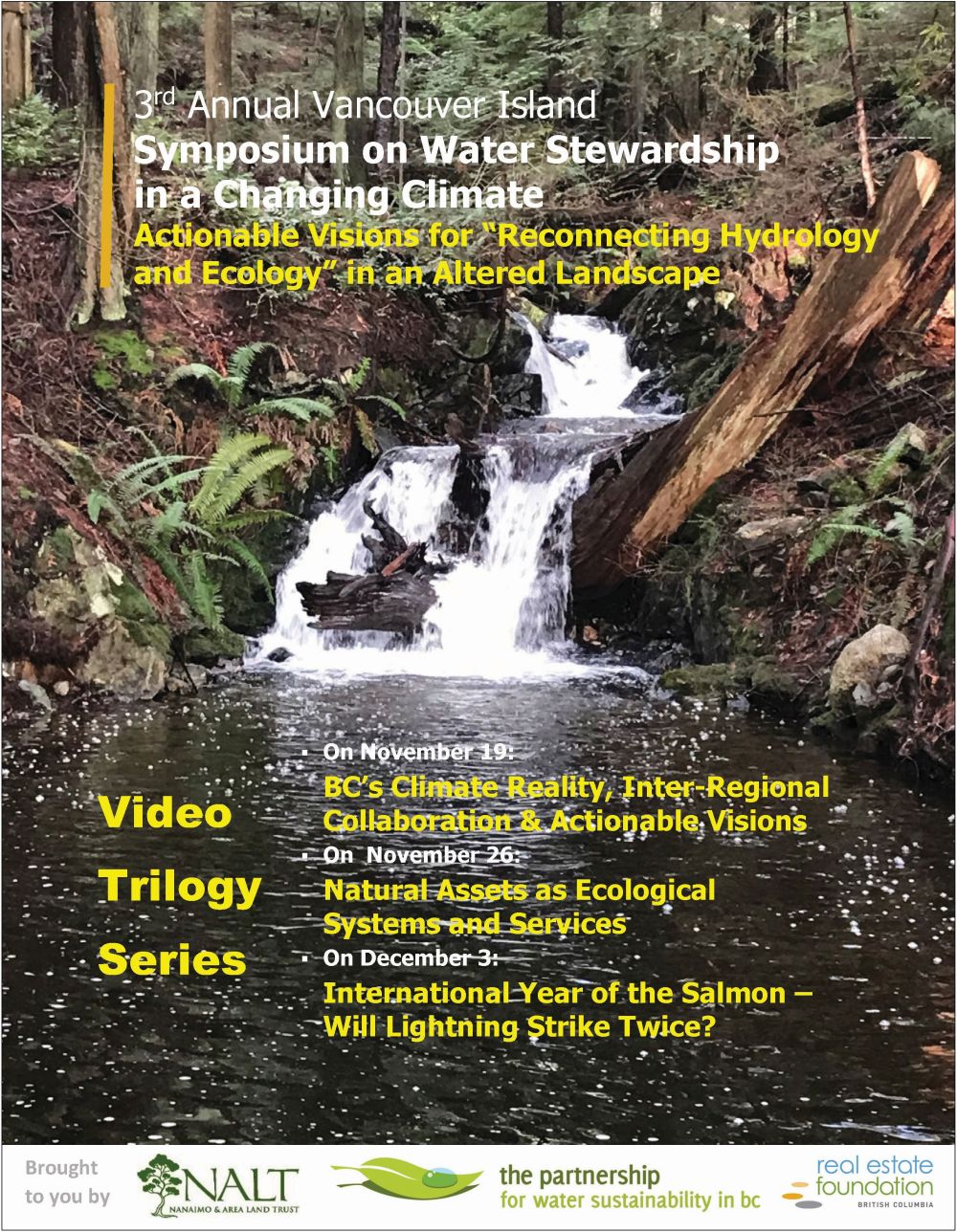ARTICLE: Natural Assets as Ecological Systems and Services: What do you know or wonder about the EAP and MNAI missions? (Asset Management BC Newsletter, Fall 2020)
Note to Reader:
 The Fall 2020 issue of the Asset Management BC Newsletter includes an article written by Kim Stephens, Executive Director of the Partnership for Water Sustainability, that foreshadows how the Third Annual Vancouver Island Symposium on Water Stewardship in a Changing Climate will be delivered by video on YouTube as a series of three “watershed moments”.
The Fall 2020 issue of the Asset Management BC Newsletter includes an article written by Kim Stephens, Executive Director of the Partnership for Water Sustainability, that foreshadows how the Third Annual Vancouver Island Symposium on Water Stewardship in a Changing Climate will be delivered by video on YouTube as a series of three “watershed moments”.
The article spotlight is on the second module in the series, scheduled for November 26, 2020. The module is a facilitated conversation between Emanuel Machado, MNAI Chair, and Tim Pringle, EAP Chair. Their focus is natural assets as ecological systems and services.
DOWNLOAD A COPY:

Natural Assets Support the Delivery of Core Local Government Services, While Doing So Much More
“Two programs – MNAI, the Municipal Natural Assets Initiative; and EAP, the Ecological Accounting Process – are facilitating the move from awareness to action that accounts for ecological systems and services. What do you know about the EAP and MNAI missions? Do you wonder whether they are the same, or different?” wrote Kim Stephens.
“The two initiatives are outcomes flowing from the tireless determination of two pioneers, EAP Chair Tim Pringle and MNAI Chair Emanuel Machado, to transform how local governments view ecological systems and the services they provide. Development of both MNAI and EAP began around 2015.

“Actually translating policy objectives into tangible outcomes requires that local governments have a methodology and metrics for valuing ecological assets and services in an asset management strategy.
“Emanuel Machado changed the local government conversation in BC. His philosophy and local government credibility continues to generate momentum for replicating the ‘Town of Gibson’s Model’ in other communities.
“For three decades, Tim Pringle has worked hard to develop and evolve a guiding philosophy, pragmatic strategy and meaningful metrics for valuing the services provided by nature; and for establishing budgets for maintenance and management.
“Once you have a number for better maintenance and management of ecological assets, what do you do with that number? Putting it into play requires an understanding of how local government processes work.”
To Learn More:
To read the complete article, download a copy of Natural Assets as Ecological Systems and Services: What do you know or wonder about the EAP and MNAI missions?


